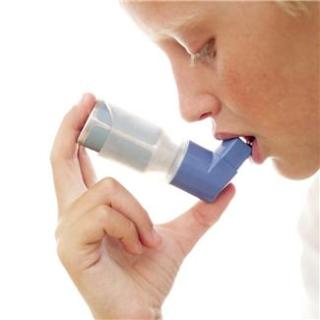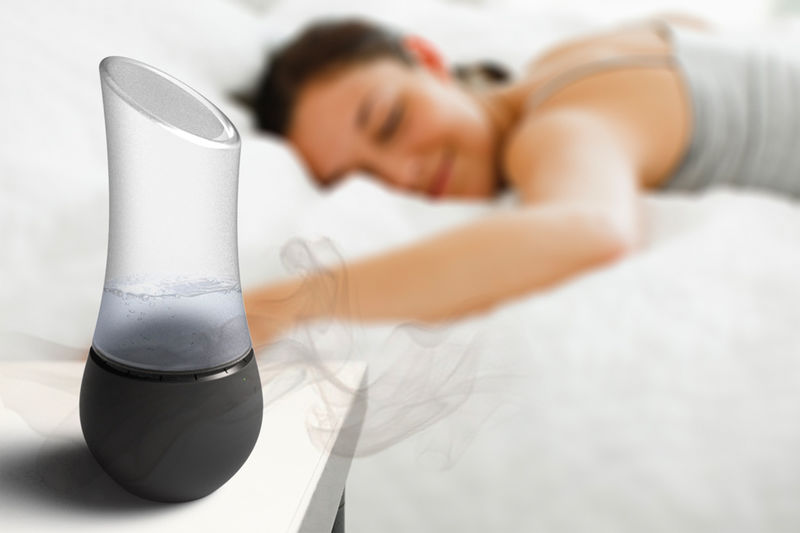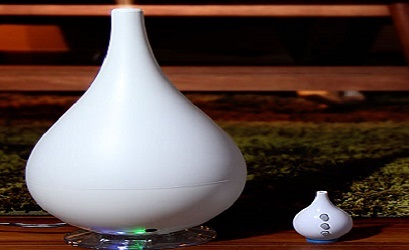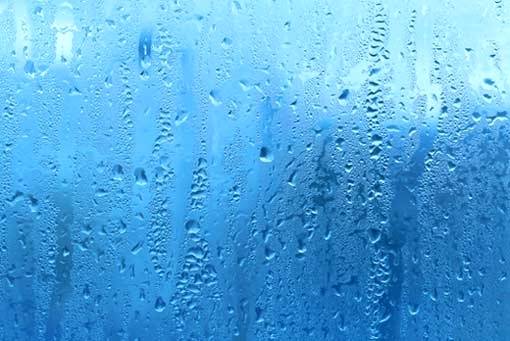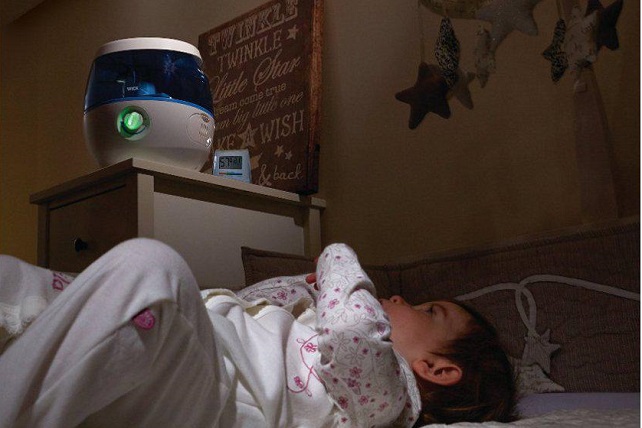Top Asthma Humidifiers: Ultrasonic & Evaporative Solutions
If you’re an asthma sufferer like me, you know the agony of a bad air day. Dry air can be a nightmare, triggering wheezing and discomfort. That’s where humidifiers come in, offering a breath of fresh air—literally! They add moisture to your environment, potentially easing those pesky asthma symptoms.
But not all humidifiers are created equal. I’ve sifted through the options to find the best humidifiers for asthma, and I’m eager to share my discoveries. You’ll learn how the right humidifier can make a world of difference for your lungs and overall comfort. Stick around, and let’s dive into a world where breathing easier isn’t just a dream—it’s a reality.
Importance of Managing Asthma Symptoms
Living with asthma means constantly being aware of the potential triggers that can set off an attack. I know from personal experience that managing symptoms is crucial for maintaining a good quality of life. It’s not just about avoiding the obvious triggers like pollen or dust; even the air quality in our homes can play a significant role.
Environmental factors, particularly those in our indoor spaces, often go unnoticed. Yet, they can be just as harmful as outdoor pollutants. Dry air, for instance, is one of these indoor triggers. It can irritate the airways, causing them to become inflamed, which in turn exacerbates asthma symptoms. That’s why monitoring and adjusting the humidity levels inside our homes can have a profound impact on symptom management.
Humidifiers, specifically, serve as a form of environmental control – a strategy recommended by asthma specialists. By introducing moisture into dry indoor air, humidifiers help maintain a balanced environment. This balance is believed to keep our airways from becoming too dry and irritated.
Integrating a humidifier into your asthma management plan, along with medication and avoidance of asthma triggers, could contribute to fewer flare-ups. I’ve noticed this simple change means I wake up feeling more refreshed, with significantly less tightness in my chest.
It’s essential to remember that while using a humidifier can be beneficial, it’s also critical to ensure that the humidity level is kept in check. Excessively high humidity can promote the growth of mold and dust mites, which are common asthma triggers. A digital hygrometer can be a useful tool for monitoring humidity levels to ensure they stay within the recommended range of 30-50%.
As part of my journey to find the best humidifiers for asthma, I’ve discovered that features like automatic shut-off, built-in hygrometers, and easy maintenance can make a world of difference for asthma sufferers like me. These features help to assure the correct levels of humidity are maintained consistently and conveniently.
Understanding the Role of Humidifiers in Asthma Management
When I deal with my own asthma symptoms, I’ve learned that maintaining the optimal level of humidity is crucial. Humidifiers play a key role in asthma management by ensuring the air in my living space isn’t overly dry. But it’s not just about adding moisture; it’s about finding the right balance that won’t aggravate my asthma.
The primary function of a humidifier is to emit water vapor to increase the humidity in a room. This is especially beneficial during winter when heating systems can dry out the air. Dry air can irritate the airways of people like me with asthma, leading to increased risk of an asthma attack. By using a humidifier, I can prevent the air from becoming too dry and help soothe my respiratory system.
However, too much humidity can also be a problem—it can promote the growth of mold and dust mites, common triggers for asthma. That’s why I always look for humidifiers with a built-in hygrometer. This feature helps me monitor the room’s humidity levels, making sure they stay within the recommended range of 30-50%.
In my experience, the best humidifiers for asthma come with options to control the output of moisture. By adjusting these settings, I can customize the level of humidity that feels most comfortable for me and my asthma. These devices often have other asthma-friendly features, such as:
- Filter systems that remove impurities from the water before it’s released into the air.
- Ultraviolet lights to kill bacteria and viruses in the water tank.
- Easy maintenance designs that make regular cleaning simpler, thus preventing the buildup of harmful pathogens.
Remember, managing asthma is a complex task where each detail matters. I’m mindful that while humidifiers are beneficial, they must be used correctly. Regular cleaning and monitoring are essential to ensure they remain an aid, not an impediment, in my asthma management strategy. I always consult my healthcare provider when making changes to my asthma care plan and inform them if I’m incorporating a humidifier into my routine.
Factors to Consider When Choosing a Humidifier
When you’re in the market for a humidifier to help manage asthma symptoms, several factors should be at the top of your mind. I’ve learned that not all humidifiers are created equal, and what works for one person may not be the best choice for another. Here are some critical points I always consider:
Type of Humidifier: First, you’ve got to decide on the type of humidifier. Ultrasonic and evaporative are the two main types. Ultrasonic humidifiers use vibrations to produce a cool mist, while evaporative models use a fan to blow air through a wet wick or filter. If you’re sensitive to white noise, an ultrasonic model tends to be quieter, which might sway your decision.
- Ultrasonic Humidifiers: Often quieter, producing a cool mist.
- Evaporative Humidifiers: Use a fan to emit moisture, might produce a cooling effect in the room.
Size and Coverage: Next up, size matters. The size of the room you’re looking to humidify will determine the size of the humidifier you’ll need. Manufacturers usually list the coverage area on the package or in the product description, so keep your room measurements handy when shopping.
Built-in Hygrometer: Remember the ideal humidity range? A humidifier with a built-in hygrometer is a must. This feature helps maintain humidity levels within 30-50%, ensuring the air isn’t too moist or too dry. It’s a game-changer for keeping asthma triggers at bay.
- Ease of Maintenance: Let’s talk maintenance. Humidifiers should be easy to clean because bacteria and mold don’t need any more invites to the party. Look for models that are easy to disassemble and have fewer small parts, making regular cleaning less of a chore.
ASTHMA-FRIENDLY FEATURES: Lastly, I always check for asthma-friendly features. These can include:
- Filter systems that remove particles and impurities from the water
- Ultraviolet lights to kill germs
- Easy maintenance designs to prevent mold growth
I make it a point to examine product reviews and even reach out to the manufacturer if I’ve got specific concerns about a humidifier’s features or its suitability for asthma sufferers. It’s always better to be well-informed before making such a crucial investment in health.
Top Features to Look for in a Humidifier for Asthma
Choosing the right humidifier for asthma isn’t just about picking any model off the shelf. It’s essential to zero in on features that cater to the unique needs of individuals with asthma. I’ve learned that looking beyond the basic functionality of a humidifier can make a significant difference in managing asthma symptoms.
Filter Quality is a game-changer. Humidifiers with high-quality filters can trap impurities like dust, pollen, and pet dander, which are common triggers for asthma attacks. It’s critical to choose a humidifier with either a HEPA filter or one with ultraviolet (UV) light technology to sanitize the water.
I always emphasize the importance of Adjustable Humidity Settings. Being able to control the humidity level in your room is vital because too much humidity can be just as problematic as not enough. It’s best to maintain indoor humidity levels between 30% and 50%, as recommended by experts. A built-in hygrometer is a plus, as it automatically measures and adjusts the moisture in the air.
The Ease of Cleaning is not to be overlooked. A humidifier that’s hard to clean may harbor mold and bacteria, which can exacerbate asthma symptoms. I’d recommend going for a model that has an easy-to-dismantle design to ensure thorough cleaning and maintenance.
Another feature to consider is the Noise Level. A quieter operation is preferable, especially for use in the bedroom. Noisy humidifiers can disrupt sleep, which is crucial for health, particularly for those with asthma.
Lastly, let me touch on Runtime and Capacity. A larger water tank means longer runtime, reducing the need to refill frequently. For overnight use, a humidifier that can operate for at least 8-10 hours is ideal.
When I pick a humidifier, these features are on my checklist for making an informed choice that’s beneficial for asthma management. It’s not just about adding moisture to the air; it’s about creating an environment that supports respiratory health and well-being.
The Best Humidifiers for Asthma Relief
When searching for the best humidifiers to alleviate asthma symptoms, it’s critical to focus on models that excel in providing a clean, controlled, and consistent humidification process. Ultrasonic and evaporative humidifiers often lead the pack for their respective benefits, such as quieter operation and superior moisture distribution.
Ultrasonic humidifiers use high-frequency vibrations to generate mist, and many come with built-in hygrometers that accurately adjust humidity levels. These devices are particularly beneficial for asthma sufferers as they maintain optimal moisture with minimal noise, making them perfect for nighttime use.
Evaporative humidifiers, on the other hand, utilize a wick filter to absorb water, which is then evaporated into the air by a fan. This natural humidification method helps to filter out impurities and can be better at preventing an overly damp environment, which is important to discourage mold growth—a common trigger for asthma attacks.
With the importance of having a hypoallergenic environment in mind, I’ve thoroughly researched a variety of models. Here are a few top-rated humidifiers that have received positive feedback from individuals managing asthma:
- Pure Enrichment MistAire Ultrasonic Humidifier: Known for its sleek design and easy-to-use interface, this model provides up to 16 hours of continuous operation.
- Honeywell HCM350W Germ Free Cool Mist Humidifier: This one stands out with its patented UV technology that kills up to 99.9% of bacteria in the water, offering a cleaner mist output.
- Dyson Pure Humidify+Cool: A high-end choice that combines air purification, humidification, and fan functionalities in one cutting-edge device.
Each of these models brings something unique to the table, but all align with the vital factors for asthma-friendly humidifiers: they operate quietly, allow for precise humidity control, and prioritize air cleanliness. What’s essential is to review your individual needs, the size of the space where you intend to use the humidifier, and any additional features that could enhance your comfort and health. Remember, the integration of purifying filters or UV light can elevate the effectiveness of a humidifier, making the moisture it emits as clean and beneficial as possible.
Conclusion
Choosing the right humidifier can make a significant difference in managing asthma symptoms. I’ve shared my insights on the best humidifiers that offer clean, controlled humidification to help you breathe easier. Whether you opt for an ultrasonic or evaporative model, remember that features like quiet operation and air purification can further enhance your comfort. The Pure Enrichment MistAire, Honeywell HCM350W, and Dyson Pure Humidify+Cool stand out for their performance and health benefits. Always tailor your choice to your personal needs to ensure the best asthma support at home. With the right humidifier, you’ll create an environment that not only soothes your asthma but also promotes overall wellbeing.

